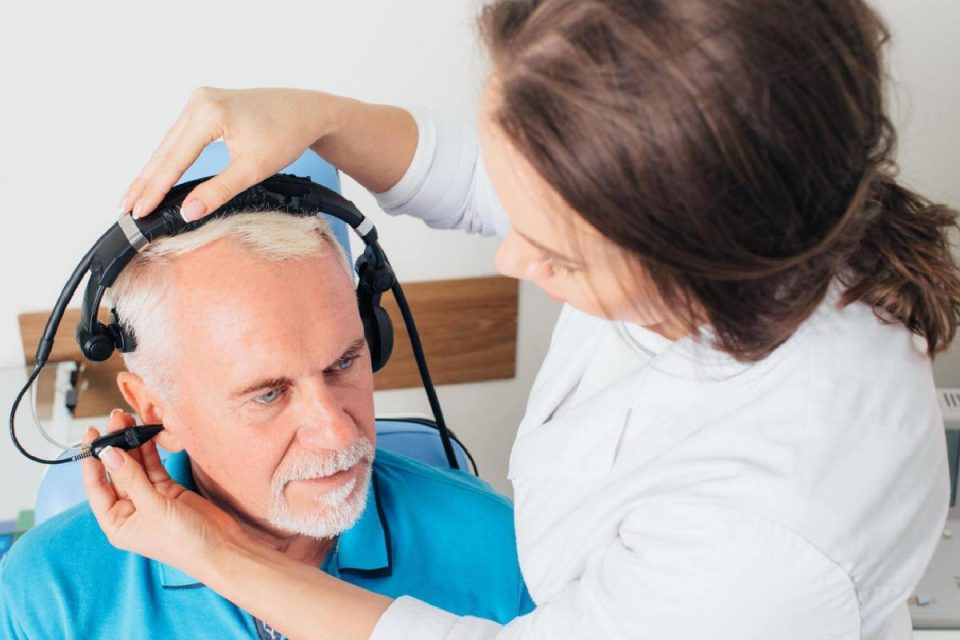The brain is by far the most complex and complicated organ that we as humans possess. In fact, our brains (and also opposable thumbs) are what make us human. It is the processes of the brain that make us complete and well-rounded individuals. The brain is the organ that has cemented our place at the top of the food chain. It is what makes us superior to other animals, intellectually so, at the very least.
It is the organ that makes the whole body function. And as such, it also happens to be involved very heavily in the process of hearing. The purpose of this article is to understand the role that our brains have in our ability to hear properly. We will also take a closer look at what happens when the auditory systems that we have are not fully synchronized with our brains. And they are not completely coordinated.
Table of Contents
How Do We Hear Sounds Exactly?
Our ears are the organs that have the ability to allow us to make sense of all the noises that we are confronted with on a daily basis. Our ears are what make sense of these noises. Ears do this as they have the ability to detect and also make distinctions between sounds. Our ears are able to do this as they have the ability to convert the noises from the environment and then convert them into sound waves. The sound waves are then converted into information which our brains are able to process.
In order for this whole process to happen properly. The sounds and noises from the environment need to be able to travel from the outer ears of ours and then into the eardrums, where they vibrate. After this point, the ossicles – the anvil, malleus, and stapes – are responsible for receiving the vibrations and then sending them towards and into the inner ear. Within the inner ear, the cochlea is responsible for stimulating an organ known as the stereocilia. This, in turn, sends electrical impulses through the means of the auditory nerve and then into the brain.
It is because our brains are so precise and complex and the functionality they possess that our brains are able to make distinctions between background noises to actual sounds that we need to be able to understand. In effect. The brain has the ability to act as a sort of filter, and it allows us to hone in on the sounds that are important and those that we need to understand. So, you may be wondering what happens when our brains and our hearing are out of sync. Well, I wonder no more as we will be looking into that particular aspect right next.
What Happens When There Is A Disconnect Between The Brain And The Auditory Systems Of The Body.
If a person is suffering from conductive hearing loss, for example, the brain of that person is then required to work that much harder in order to distinguish between speech patterns and background noises. It is important to note here that if a person suffers from something that is known as sensorineural loss of hearing, then the result is that the auditory nerve is then unable to process the sounds. This is despite the fact that the sound waves were properly transmitted to the inner parts of the ear.
There are also a whole host of other issues which have their origins in the brain and which can also really affect the hearing abilities of a person to hear properly. These issues include things such as tinnitus. This condition is responsible for causing a buzzing (sometimes also called ringing in the ears) that is not at all being transmitted from any external sources. According to a whole host of studies, this condition takes hold of the person and is caused by changes in the brain that directly result from losing the ability to hear.
How Our Brains Adapt To A Loss Of Hearing
A lot of other studies have been successful in determining that our brains are responsible for adjusting to any hearing loss that we may suffer, and it does not matter how mild the issue is. In these particular studies, cameras were made use of in order to understand the effect of a loss of hearing on the brain. They were able to determine that when a person loses their sense of hearing, their other senses tend to get heightened automatically. This particular test was able to determine that the frontal lobe became much more sensitive in people with hearing loss. The frontal lobe is the part of the brain where memory is stored.
The study was also able to determine that when a person has hearing loss and wears a hearing aid device, their brains start to resemble the ones of a person with normal hearing. There are some serious misconceptions about digital hearing aids, and many avoid them as a result. The fact is that so many hearing aid users have completely changed their quality of life.
Disorders And Issues Caused By Hearing Loss
One of the worst problems with hearing loss is that it can lead a person to feel both isolated and also confused. The mental health of these people suffering from hearing loss was also looked into with very pronounced interest as the brain is affected by the loss of hearing.
These studies were also able to determine that a person suffering from hearing loss is much more prone to suffering from depression even if they use a hearing aid. Then there was also other research that has pointed out that hearing loss can also lead to emotional or behavioral issues. Which can be a direct result of deafness or loss of hearing.

